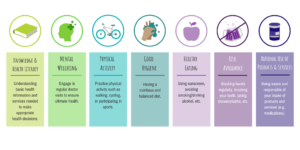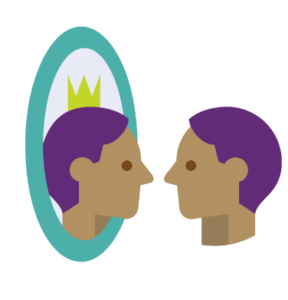Menu
Close
July 24 Is International Self-Care Day
Jul 24, 2021
What is self-care?
Self-care is the practice of taking the necessary steps to preserve or improve one’s overall health. It is not an act of selfishness, but an act of self-compassion towards your body, mind and soul.
Anyone can practice self-care. However, practicing self-care is different for everyone.
No matter what you deem as self-care, that time spent is meant to nurture and rebalance yourself.
International Self-Care Day
July 24 is International Self-Care Day, which aims to raise awareness of the significance of self-care. Although celebrated on a single day, self-care needs to be practiced and appreciated every day of the year.
Established in 2011, the International Self-Care Foundation (ISF) envisions that people of all generations will live long healthy lives by taking responsibility for their own wellness by adopting healthy lifestyles and self-care behaviours.
Balancing your self-care can be achieved by addressing the Seven Pillars of Self-Care framework made of 7 elements explaining the different areas of self-care.¹

The pillars are:
- Health literacy – Understanding basic health information and services needed to make appropriate health decisions.
- Mental well-being – Engage in regular doctor visits to ensure ultimate health.
- Physical activity – Practice physical activity such as walking, cycling, or participating in sports.
- Healthy eating – Having a nutritious and balanced diet.
- Risk avoidance or mitigation – Using sunscreen, avoiding smoking/drinking alcohol, etc.
- Good hygiene – Washing hands regularly, brushing your teeth, taking showers/baths, etc.
- Rational and responsible use of products, services – Being aware and responsible of your intake of products and services (e.g. medications).
Finding your self-care
Self-care doesn’t have to be designated to one or two days out of the week. Unwinding and reenergizing your mind and body is a necessary treatment that should be normalized as a daily practice in your youth, and into your adulthood.

Don’t know what kind of self-care works for you? Let’s break down a couple of questions that you can ask yourself to discover your self-care practices.²
What brings you joy?
Jot down a list of things that bring you joy. This could include a particular scent, colour, food or beverage item, time of year, television show, movie, musician, song, activity, sport, etc.
How can I include these things into my life?
Look at your list and think of ways you can incorporate a couple of your favourite things into your everyday schedule.
It could be as simple as incorporating your favourite colours and smells into your work area, or more of a bigger change and taking time out of your regular schedule to enjoy a certain activity (watch your favourite show, walk your dog, play a video game, etc.)
Surrounding yourself with things that hold joy and significance to you can ultimately boost your mood, and even make you more productive!
Is this working for me?
After a couple of days, assess how incorporating these self-care items or practices has done to your overall well-being.
Have you seen positive benefits? Are you distracted? Is it overwhelming?
Discovering your self-care practice will take time, and will always be evolving. Sometimes what you deem as ‘self-care’ at some point in your life might change. The best part of implementing self-care is finding new ways to nurture ourselves.
Want to learn more about self-care? CMHA Calgary’s Recovery College course ‘Taking Charge of Self-Care‘ goes through different kinds of self-care with hands-on practice to find what works for you.
Recovery College also offers a course called ‘Self-Care Starter Pack‘ which teaches you how to take time for yourself while building self-esteem and maintaining healthy boundaries in order to keep yourself mentally and physically well.
¹”What Is Self Care.” International Self-Care Foundation. Accessed July 12, 2021. https://isfglobal.org/what-is-self-care/
²Lawler, Moira. “How to Start a Self-Care Routine You’ll Follow.” Last modified April 5, 2020. https://www.everydayhealth.com/self-care/start-a-self-care-routine/

You are not alone. There is help.
If you cannot find someone you trust who is willing to support you, dial a crisis line right away at 403-266-HELP (4357) All crisis lines are confidential.

YouthSMART would like to thank Sagium and Kinsted Wealth for being our 2020 – 2021 website sponsor.

